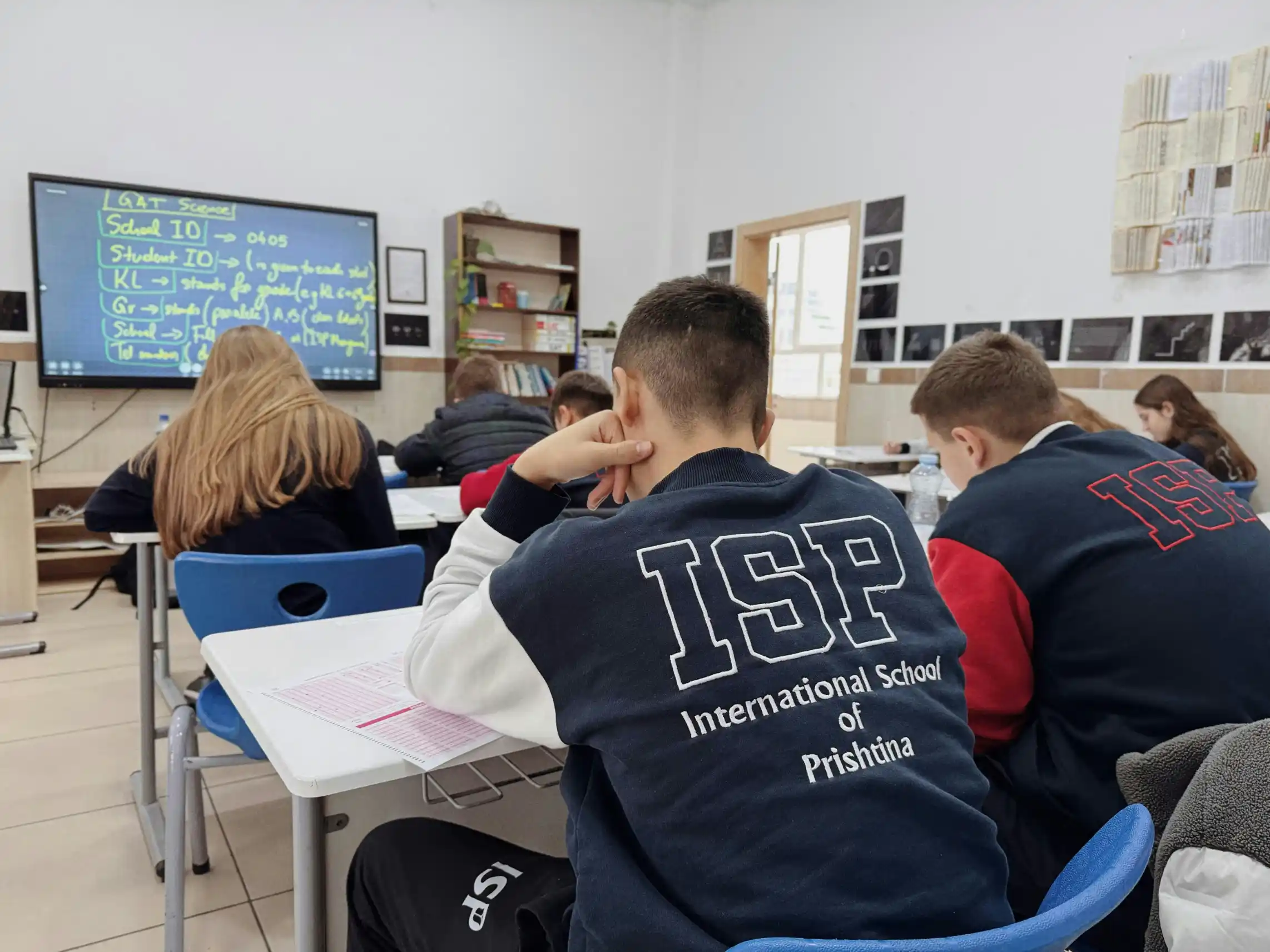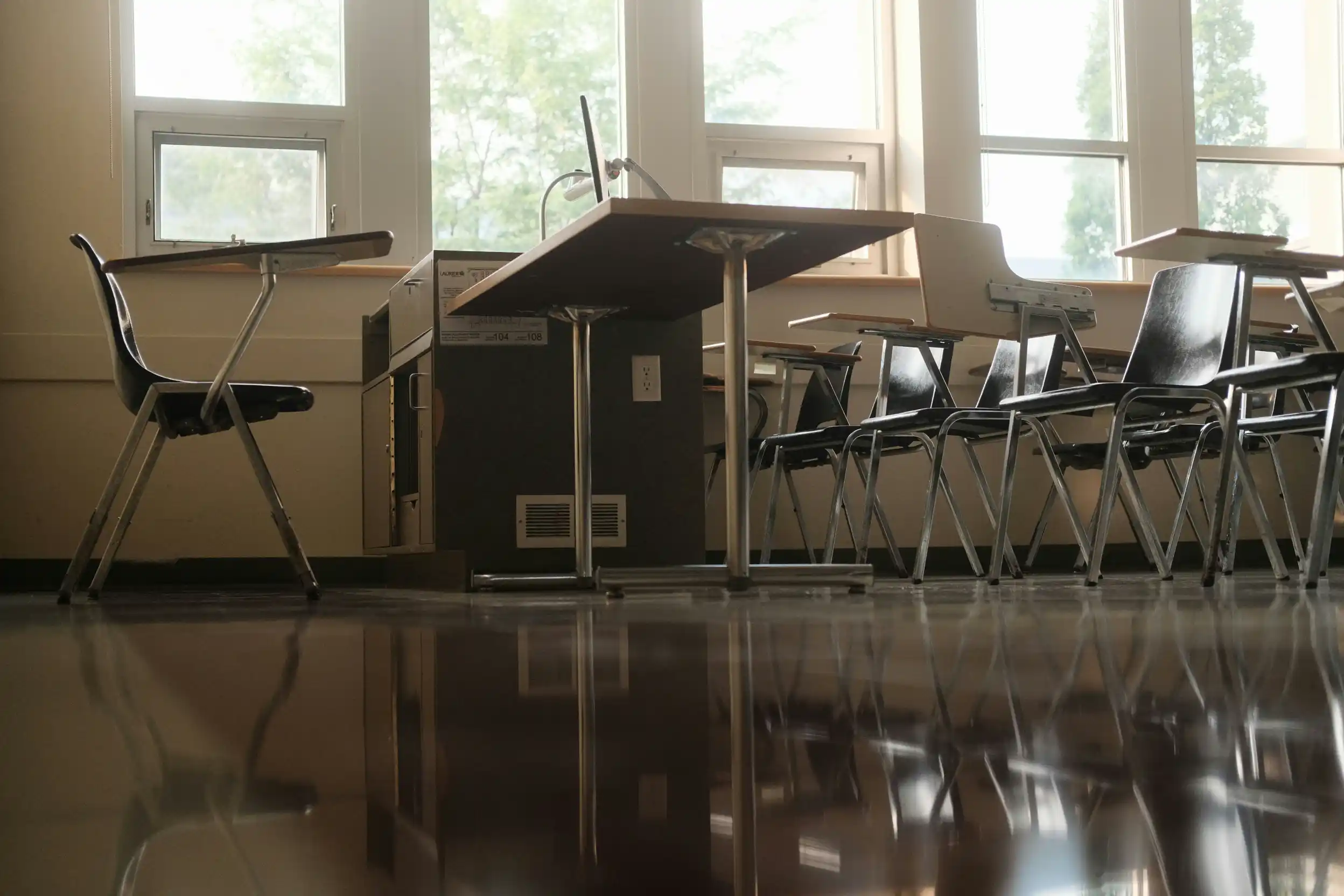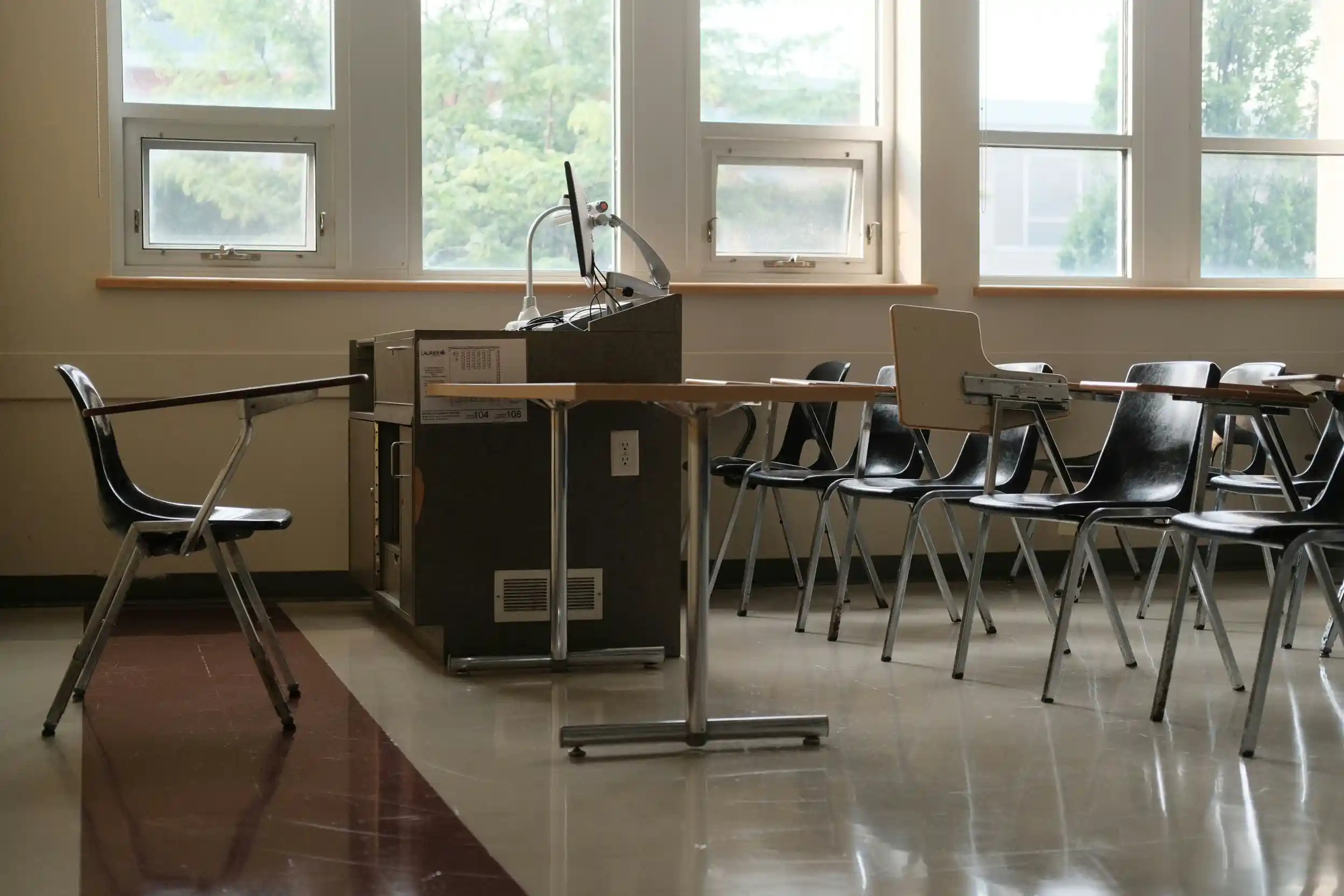For Education Leaders
Get proven strategies and expert analysis from the host of the Learning Can't Wait podcast, delivered straight to your inbox.
High-Dosage Tutoring
Accelerate Growth with Proven Tutoring
- Frequent, data-driven personalized sessions
- Certified, virtual, budget-friendly
- Boosts grades & closes gaps fast
How Much Does a Tutor Cost? Tips on How to Save

When looking for tutoring services, one of the main questions that concerns parents and students is how much a tutor costs. While one-on-one tutoring has proven to be an effective strategy to boost educational results and learning outcomes, to be successful, this strategy requires regular sessions and long-term commitment, which might come at a hefty price for families. Thus, it’s important to know how much you will have to pay before you get started and how to lower the cost of tutoring without negatively impacting the quality of services.
This article provides all the information that students and parents need to understand how much a tutor costs, from the average rates for in-person and online services, through tips on how to save without compromising quality, all the way to how to find the best, yet affordable tutors in your area.
Meanwhile, if you’re looking for affordable online tutoring by state-certified PreK-12 teachers at an average rate of $40/hour, check out iTutor.
What Is the Average Tutoring Cost?
The average cost of hiring a tutor in the US is between $40/hour and $80/hour. However, the potential range of tutoring prices can be very wide, driven by a multitude of factors. It can cost from as low as $25/hour for less specialized services by a less qualified tutor to as high as $150/hour for highly specialized tutoring services by a certified and qualified tutor.
To estimate how much you will have to pay for tutoring, you have to understand the factors that impact how much a tutor costs.
Factors That Affect the Cost of Tutoring Services
There are a number of factors that determine the total price of tutoring services. These include:
- In-person vs online tutoring: On average, online tutoring tends to be 20-30% cheaper than in-person tutoring for the same subject and tutor qualifications. The reason behind this price difference is the additional convenience for the tutor associated with teaching from the comfort of their own home instead of having to meet students in a designated location.
- Hiring a tutor directly vs using a platform: Working with an individual, independent tutor is usually more cost efficient than subscribing to an online tutoring platform. Platforms typically charge a commission and some even charge a subscription fee. Even if these fees are not clearly announced, platforms charge students more money than they pay to the tutors.
- Location: The cost of tutoring services differs by location. Tutors in states and cities with a higher cost of living charge more than those in more affordable markets.
- Grade level: There are some differences, albeit relatively small, by the rates for elementary school vs middle school vs high school vs college or university tutoring. Higher grade levels cost more due to the more specialized knowledge and expertise required.
- Subject: Tutors in more specific and unique subjects, such as APs, electives, and test preparation, charge more than tutors in more general subjects, like K-12 math and English.
- Tutor qualifications: Highly qualified, state-certified tutors tend to ask for higher rates than those with basic knowledge of the subject and no additional certifications.
- Number and frequency of tutoring sessions: Usually you are likely to pay less per hour if you get a package with a fixed number of tutoring hours rather than an individual tutoring session.
- Additional fees: Some tutoring websites charge additional fees for getting started, for instance. You have to take these fees into consideration when calculating the total cost of tutoring.
As there are so many facets that impact the price of tutoring services, you can expect anything between $40/hour and $80/hour, on average.
In-Person vs Online Tutoring Costs
Generally speaking, in-person tutors charge 20-30% more than online tutors because of the transportation costs and the inconvenience associated with the need to be at a specific place at a specific time. On average, in-person tutoring costs $40 to $90 per hour, while online tutoring costs less, at $30 to $80 per hour. Nevertheless, there are many other factors that affect the cost in both cases, such as your location, grade level, subject, and number of tutoring sessions required.
To give you a better understanding of the cost of online tutoring, here are the rates that some of the best online tutoring platforms charge:
- iTutor: $40/hour in most cases, for state-certified teachers working with all ages 3+
- Tutor.com: $29-$40/hour purchased in packages, for tutors with various qualifications who are not necessarily state-certified
- Varsity Tutors: $70-$100/hour, for qualified tutors who don’t always hold a state certification
- Skooli: $39-$49/hour purchased in packages, for tutors who have a state certificate, a minimum of bachelor’s degree, or specialized instructor qualification
- Wyzant: $25-$250/hour, for tutors with widely varying qualifications who usually don’t hold a state teaching certificate
- Air Tutors: $100-$120/hour purchased in packages, for tutors with different educational attainments and qualifications, who don’t necessarily have a state-issued teaching certificate
How Do Tutors Set Their Fees?
Tutors decide how much to charge for their services mostly based on the factors affecting the cost of tutoring listed above. First and foremost, they take into consideration their subject(s) and grade level(s), the demand for these subjects from students, and the strength of competition from other tutors in the local market. Tutors who specialize in more technical and exclusive subjects and who teach students at higher levels can afford to charge more.
The second most important factor that tutors need to take into account is their level of education, expertise, and qualifications. The more degrees, licenses, and certifications a tutor holds, the higher their cost can be. They also need to factor their tutoring experience, their achievements with previous tutorees, and their online reputation or standing in the local area. After all, parents and students are willing to pay more for better-quality tutoring services than for services of mediocre quality.
Finally, tutors have to consider their location as some markets are generally more expensive than others. Differences in local tutoring rates are more pronounced for in-person services, but there might be fluctuations in case of online tutoring too.
When Do Tutors Get Paid?
The timing of tutor payments depends mostly on the method in which you hire the tutor. If you work directly with an individual tutor, you usually pay them at the end of each session based on the length of the session, according to the agreed upon rate.
In case you opt in for an online tutoring platform, you might be obliged to purchase a prepaid package with a certain number of tutoring hours that you can use within a specified time limit. Tutor.com and Skooli, for example, use this model. Other platforms, such as iTutor and Wyzant, charge for each individual session, either before or during the session.
It’s important to note that most tutors and tutoring websites charge cancellation fees in case the student doesn’t show up or cancels too close to the session. In most cases, it’s possible to cancel for free as long as that’s done at least a few hours prior to the session.
Tips on Saving Money When Hiring a Tutor
While tutoring costs can add up to a significant amount of money, especially for parents whose children need continuous support in a number of subjects, it is possible to cut down the total cost without compromising the quality of assistance and the final outcome.
Here are 6 proven tips on how to spend less on tutoring while maintaining the quality of services required for high academic achievements and strong learning outcomes:
1. Choose Online Tutoring Services
First, you should consider hiring an online tutor, potentially through one of the top tutoring websites. With the myriad of tutoring platforms that have appeared over the last few years, online tutoring is not only cheaper but in many cases it is better than in-person tutoring.
When you opt in for online tutoring, you can choose from hundreds of highly specialized tutors to find the best and most qualified match for your specific academic needs as you are no longer limited to the tutors located in your area. Moreover, you benefit from more flexibility as online tutors are generally available around the clock, all days of the week.
Cost savings can be especially significant if you live in an expensive city and hire a tutor who is located in a more affordable market.
2. Sign Up for Recurring Packages
Another strategy to spend less per hour without this having any negative impact on the quality of tutoring that you receive is to go for a prepaid package. In general, packages with more tutoring hours included in them cost less per hour than individual sessions or packages with just a couple of hours.
Since tutoring requires consistency to achieve the best results, you should not worry about not finishing all hours, especially if your package lasts for a few months or a year.
3. Work in Groups with Other Tutees
Tutoring usually happens one-on-one or in small groups to get the best outcomes. You can pair up with other students from your school or neighborhood who need support in the same subject areas and get tutoring together to save on the cost.
This is a very cost-efficient strategy that can work really well for those who enjoy working in groups and who learn from other students. The added benefit of small-group tutoring is that you can learn a lot from the struggles that other students undergo and from the questions that they ask.
However, before you choose this option, keep in mind that you might need to make sessions a bit longer or more frequent to allow for extra time to go through the individual challenges of each student. Still, you are likely to save a lot on the cost of a tutor as you and your peers are likely to face many common obstacles.
4. Keep Tutoring Sessions Shorter
As tutors usually charge per hour, you can save on the total cost by keeping each session up to 30-45 minutes rather than a whole hour. In addition to costing less, shorter tutoring sessions bring another advantage. In specific, studying for a shorter period of time allows you to remain better focused and absorb more material. This is particularly important for such intense studying methods as private tutoring.
Shorter sessions are particularly feasible with online tutoring as you can get them from the comfort of your home and you don’t have to travel for a couple of hours to get just 30-45 minutes of tutoring.
5. Hire Multiple Tutors
Another way to lower the total cost of tutoring is to work with a few different tutors. You can hire one highly qualified, state-certified professional who ensures that you cover all the material that is required in your district with the expected level of detail. Meanwhile, you can hire less qualified tutors, including higher grade or college students, for things such as exercises and homework assistance.
This can be a very efficient way to spend less on tutoring while getting all the knowledge and support that you need.
6. Negotiate Tutoring Costs
Finally, there is nothing wrong with trying to negotiate the hourly rate with your tutor. This strategy can work well if you hire an individual tutor whom you pay directly and if you plan to ask for tutoring sessions a few times a week, over the course of several months. However, you are less likely to be able to negotiate a discount if you hire a tutor through a platform as they are less flexible and have additional administrative costs.
With these 6 simple-to-implement, yet effective tips you can make significant savings on the total cost of tutoring while getting the best assistance and support for yourself or your child.
How to Find Good, Cost-Efficient Tutoring Services
Finding the right tutor who charges reasonable and affordable rates is key for the academic progress and achievements of a student. Looking for an in-person, local tutor and online tutoring services are two separate processes, so let’s take a look at the steps involved in each process for the best possible outcomes.
How to Find a Local Tutor
Finding a qualified in-person tutor who doesn’t cost too much requires going through the following steps:
- Consult with the school: The first step is to check out whether your school offers supplemental instruction and whether you qualify based on their criteria. Even if your school does not provide tutoring services to students, they might be able to recommend a local tutor with proven expertise and experience who might offer discounts to students from your school.
- Ask for referrals: The next step is to ask local students and parents for recommendations for tutors they have worked with, who have been able to deliver the expected results without breaking the bank. If you don’t know anyone who has benefited from in-person tutoring services in your subjects, you can consult with parents and students on local online forums.
- Check out local tutoring centers: You can visit local libraries and community centers as many of them offer tutoring services, oftentimes at discounted rates in partnership with local educational organizations. Some tutoring platforms also offer in-person services in certain locations. For example, Back to Basics Learning Dynamics provides in-person tutoring in the Tri-State Area including Delaware, Maryland, and Pennsylvania.
- Connect with local students: It is worth looking for high school, college, or university students in the area who have experience tutoring younger students. If you don’t know anyone in particular, you can connect with local colleges and universities and check if their students offer such services.
- Interview a few potential tutors: Once you’ve identified a few potential candidates for the tutoring position, you should try to schedule a quick in-person interview with them. It’s a good idea to bring your child to the meeting to make sure that the personality and the teaching style of the tutor is a good match for your child’s needs. In addition, evaluate the tutors’ experience, expertise, and qualifications during the interview. If possible, it’s highly recommended to schedule a test session, paid at a lower rate, as part of the interview and evaluation process to make sure that the tutor’s methods resonate with your child.
- Get proposals for short-listed candidates: After you’ve narrowed down your list of potential tutors to a few, ask them for a custom proposal where the tutor cost reflects the specific needs of your child in terms of session duration, frequency, and total length.
- Negotiate potential discounts: Finally, try to bring down the cost by committing to a few sessions per week, a few months in a row, or any of the other techniques to lower the cost of tutoring, discussed above.
How to Find an Online Tutor
Meanwhile, if you want to hire an online tutor who charges reasonable fees, you should undertake the following steps:
- Evaluate your specific needs: The first step in finding the best online tutor is to identify the specific needs of your child. What subjects do they need tutoring in? Is tutoring required to catch up with peers or to develop certain skills? How often do you plan to have tutoring sessions? Over what period of time?
- Find a few trustworthy online tutoring platforms: With dozens of tutoring websites, you have to find the best ones for the subjects and grade level that you need them. To do that, you can see which platforms parents recommend on parenting forums as well as which ones are highlighted in listicle-style articles on reputable education websites.
Check out iTutor for personalized tutoring by PreK-12 state-certified teachers that costs $40/hour in most cases.
- Check customer reviews on reputable third-party websites: After you locate a few potentially good tutoring websites, you should check out their average ratings on review websites, such as Trustpilot and BBB. In addition, read through a few positive and negative reviews to identify what parents like the most and the least about each one of them. That’s one of the most straightforward and efficient ways to figure out the main pros and cons of different options.
- Figure out the cost: Visit the pricing pages of a few short-listed online tutoring platforms to find out how much they charge per hour and whether there are any discount options, such as prepaid packages or longer-term commitment.
- Connect with a few top platforms: Since some tutoring platforms do not disclose their fees on their website, you might need to get in touch with the sales team to get a quote based on your needs and requirements.
- Ask to meet the tutor: Because tutoring websites work with dozens of different tutors, it’s important to ask for the specific teacher who will tutor your child and schedule a quick online meeting with them. That’s an important step in confirming that the tutor is a good match for the personality and the preferred style of your child and that they will be able to get the most value out of tutoring.
- Look for possible discounts: Finally, discuss potential discounts with the sales team based on the number of sessions you plan to have, the frequency, and the duration of each session. If you have a few children who need tutoring, subscribing all of them to the same platform might also give you a significant discount.
Whether you decide to hire an in-person or online tutor, it’s important to regularly monitor the progress of your child and discuss their level of happiness with the tutoring services. If results are mediocre or your child has any doubts, don’t hesitate to raise your concerns with the tutor and look for another one if they don’t take your feedback seriously and don’t introduce the necessary changes.
Bottom Line
While the average tutor costs $40-$80/hour in the US, there are major differences in tutoring prices based on subject, grade level, location, tutor qualifications, and other factors. Generally, in-person tutoring costs more than online tutoring, but the latter offers more diversity and flexibility as well as access to highly qualified tutors nationwide. Once you’ve identified the best option for yourself or your child, try to negotiate a better rate by subscribing to a bundle of more frequent, shorter sessions over the course of a few months.
For top-ranked, personalized tutoring by state-certified and vetted teachers, check out iTutor. Most tutors charge $40/hour while offering more specialized and qualified services than competitors.
For Education Leaders
Get proven strategies and expert analysis from the host of the Learning Can't Wait podcast, delivered straight to your inbox.
Let’s Work Together
We’ll review your application and get in touch!




.webp)
.webp)



.webp)



.webp)
.webp)


.webp)
.webp)
.webp)











































.webp)



%20.webp)

























.webp)

.webp)

